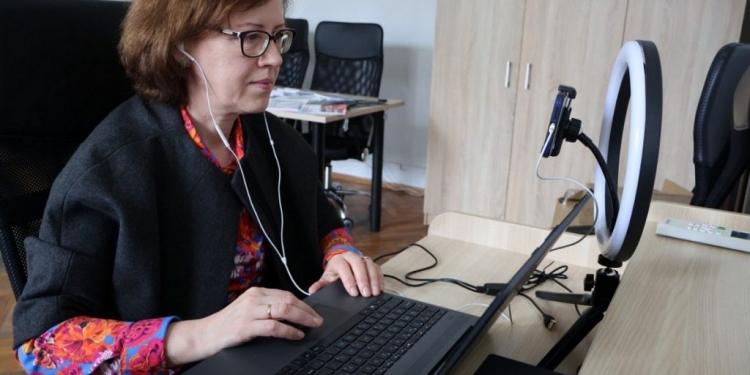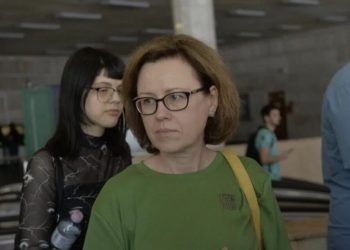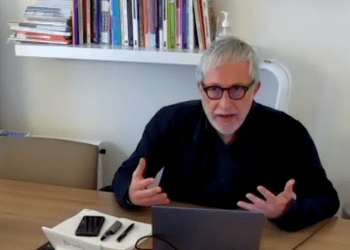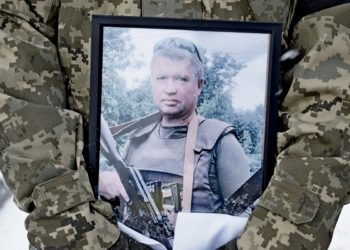Ukrainian journalists covering the war need advice that takes into account the current situation on the front.
Lina Kushch, the First Secretary of the National Union of Journalists of Ukraine (NUJU) and the co-chair of the Gender and Diversity Expert Group, said this at the meeting of this group established by the European Federation of Journalists (EFJ).
The members of the Expert Group adopted a “roadmap,” which includes activity priorities and concrete measures to overcome all forms of discrimination in the workplace, protects the rights of female journalists, improves their safety, etc. The group members also agreed to collect examples of best practices implemented by journalists’ unions and associations to achieve gender equality and diversity.
“During the online meeting, I showed the group members our Kyiv Journalists’ Solidarity Center (JSC), the protective equipment we provide to journalists and safety manuals, and informed them about trainings conducted for female journalists. Thanks to the meetings at our Centers, our female colleagues have the opportunity to receive advice and knowledge based on current needs and the security situation,” Lina Kushch said.
Maja Sever, the President of the EFJ, who took part in the meeting of the Expert Group, believes that the experience of Ukrainian journalists is extremely valuable and should be shared among other members of the federation. The EFJ President also offered to involve female trainers and speakers from European countries in online events held by the JSCs.
Call the Kyiv Journalists’ Solidarity Center by dialing 050 680 5204 (Illia Suzdaliev, the Kyiv JSC coordinator). JSC’s address is 27A Khreshchatyk Street.
As earlier reported, the Journalists’ Solidarity Centers is an initiative of the NUJU implemented with the support of the International and European Federations of Journalists and UNESCO. The initiative is designated to help media representatives working in Ukraine during the war. The Centers operate in Kyiv, Lviv, Ivano-Frankivsk, Chernivtsi, Zaporizhzhia, and Dnipro and provide journalists with organizational, technical, legal, psychological, and other types of assistance.
UNESCO is the United Nations Educational, Scientific, and Cultural Organization. It contributes to peace and security by promoting international cooperation in education, sciences, culture, communication, and information. UNESCO promotes knowledge sharing and the free flow of ideas to accelerate mutual understanding. It is the coordinator of the UN Action Plan on the Safety of Journalists and the Issue of Impunity, which aims to create a free and safe environment for journalists and media workers, thus strengthening peace, democracy, and sustainable development worldwide. UNESCO is working closely with its partner organizations in Ukraine to provide support to journalists on the ground.
The designations employed and the presentation of material throughout this digest do not imply the expression of any opinion whatsoever on the part of UNESCO concerning the legal status of any country, territory, city, or area or its authorities or concerning the delimitation of its frontiers or boundaries.
The authors are responsible for the choice and the presentation of the facts contained in this digest and for the opinions expressed therein, which are not necessarily those of UNESCO and do not commit the Organization.
NUJU information service

 THE NATIONAL UNION OF
JOURNALISTS OF UKRAINE
THE NATIONAL UNION OF
JOURNALISTS OF UKRAINE
















Discussion about this post